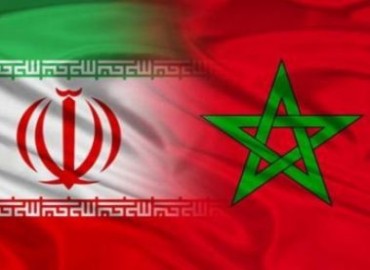Polisario Front and Morocco’s relations with Iran
Published on Thursday 24 May 2018 Back to articles
Morocco has announced that it would be severing diplomatic relations with Tehran because of the latter’s support for the Polisario Front, the Saharawis movement for Western Sahara independence (among other things).
Morocco has accused Iran and Hezbollah of training and arming Polisario Front fighters through the Iranian embassy in Algiers. Bahrain, the UAE, Saudi Arabia, the Arab League, the Gulf Co-operation Council (GCC), and the Organisation of Islamic Co-operation (OIC) all publically supported this move. By contrast, the Polisario Front, Iran and Hezbollah quickly denied these allegations, and the Algerian government summoned the Moroccan ambassador to reject the accusations. Tunisia has offered to mediate to mend Morocco-Algeria, but neither side has been receptive.
Moroccan relations with Iran have been poor since 1979 when the Shah stopped in Morocco at the invitation of King Hassan II, who refused to extradite him. Morocco also severed diplomatic relations with Iran from 2009-2014 over Tehran’s support for the majority Shi’a community in Sunni-dominated Bahrain.
Iran has supported the Polisario Front in the past, and successive Moroccan governments have long been suspicious of its support for Shi’a evangelism and Morocco’s minority Shi’a community.
Yet the timing of this particular deterioration of relations was not accidental, and represents a continuation of Morocco’s historical tendency to tie the perennial Western Sahara issue to other higher-priority foreign policy issues.
The statement came during a period when the conflict in Western Saharan has been predictably volatile around the UN Security Council’s 27 April decision to renew the mandate for the UN Mission for the Referendum in Western Sahara (MINURSO). It also came in the context of Moroccan efforts to gain favour with the US and Gulf allies. King Mohammed VI did not attend the Riyadh Summit in 2017, during which Gulf leaders solidified ties with the US Administration.
By linking the Polisario Front to Iranian influence in North Africa — shortly before the US made the expected decision to withdraw from the Joint Comprehensive Plan of Action (JCPOA), commonly referred to as the Iran Nuclear Deal — Morocco has been able to garner US support for its position in the Western Sahara. The US new National Security Advisor John Bolton had previously spoken out in favour of a referendum in the Western Sahara and against Morocco’s autonomy plan, but is currently much more concerned with developing policy against Iranian influence. By linking the Polisario Front to Iranian influence in North Africa, Morocco has been able to garner US support for its position in the Western Sahara.
Proof of this manoeuvre’s success can be found in the text of US-drafted UN Security Council Resolution renewing the mandate for the United Nations Mission for the Referendum in Western Sahara (MINURSO). It specifically called on neighbouring states to participate in the process in an apparent nod to Morocco’s insistence that Algeria participate in the talks, which also diminishes the Polisario Front’s autonomy claims. The resolution specifically calls out the Polisario Front’s ‘de-stabilising actions’ in the buffer zone in 2018 without similarly pressing Rabat to accept a UN expert mission in the area on which the UN had previously insisted on Morocco.
This article is taken from our new Morocco country risk analysis. To receive a free sample contact our team here.



